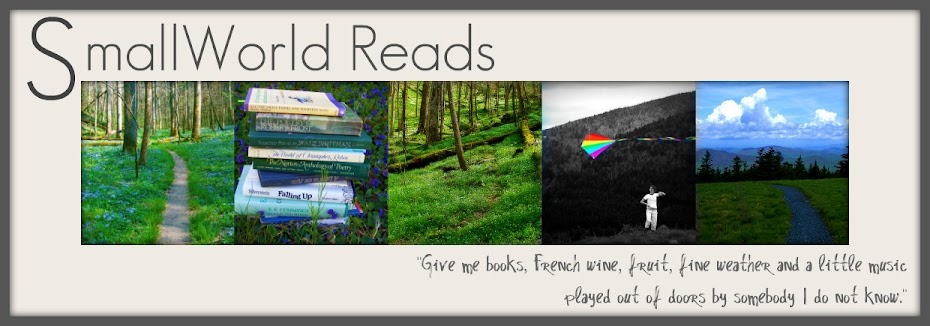 I'm squeezing in one last review of 2010 in between New Year's Eve appetizer courses. I had the luxury of reading for several uninterrupted hours the past couple of days and managed to finish one last book: Pat Conroy's South of Broad.
I'm squeezing in one last review of 2010 in between New Year's Eve appetizer courses. I had the luxury of reading for several uninterrupted hours the past couple of days and managed to finish one last book: Pat Conroy's South of Broad.First of all, I should say that Conroy is a master storyteller. I'm just not sure that I liked this story. I was mesmerized by the first few sections, but it took so many bizarre twists and turns that I'm still kind of recovering.
The main action takes place in Charleston, SC, with a cast of eclectic friends including Toad, the narrator (who is the son of a Catholic nun), a pair of orphans, theatrical twins, two black teens in a sea of white, and a few Charleston high-society types.
Conroy spans about 30 years, covering everything from suicide to integration to socioeconomic prejudice to AIDs to child abuse to insanity and just about everything in between. And there's lots of graphic sex of all kinds (including rape and incest), blood, gore, and plenty of tragedy. I'm exhausted just thinking about the roller coaster I've been on with Toad and his friends the past few days. It was all just too much. Just one of the storylines could have made a great novel, but so many dramas mixed into one novel just makes chaos.
One question that kept rising to the surface as I read through the chapters was this: Does anyone really live like this? Is this actually reflective a real person's life? I just can't buy it.
Yesterday when I was about 1/8th of the way through the novel, I told my husband I loved it. Tonight, upon finishing, I say, "Good riddance."
Other Reviews of South of Broad
The Literate Housewife
Medieval Bookworm
Jen's Book Thoughts
Pajiba
Alison's Book Marks




















